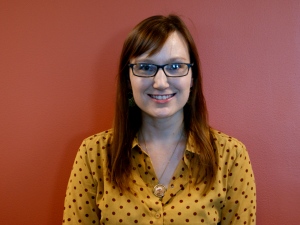Now that we’ve had some time to wind down from the Spring semester and settle into Summer, I would like to announce formally the selection for the FGSDH Summer Reading Group: Matthew Jockers‘s Macroanalysis: Digital Methods and Literary History (U. Illinois Press)

At the Digital Classics Association conference in Buffalo this April, I was lucky enough to share a panel on “Literary Criticism and Digital Methods” with Prof. Jockers. My paper was about studying patterns of alliteration in Latin poetry and his about sentiment analysis in Irish-American literature, but both talks discussed the importance of using “distant reading” techniques (to use the term that Franco Moretti coined as a challenge to the literary critical commonplace of “close reading.”) That is, we both dealt, for the most part, with techniques which use algorithmic means of textual analysis, leveraging the power, speed and efficiency of computers to treat vast amounts of literary data.
Dealing with literature on this sort of scale is becoming more and more common and opens up for scholars new research opportunities and interpretative possibilities. As Moretti points out in Graphs, Maps, Trees, a student of 19th-century British novels *cannot* possibly read the 20-30,000 novels (so he guesses) published during this time: “…Close reading won’t help here, a novel a day every day of the year would take a century or so.” (4) *Macroanalysis* offers a challenge to literary criticism’s “disciplinary habit of thinking small” by demonstrating both the technology available for dealing with literature on a previously unimaginable scale as well as examples of what sorts of research questions—and subsequent interpretation—this technology makes possible. When literature can be seen from the macroanalytic perspective, “the very object of analysis shifts from looking at the individual occurrences of a feature in context to looking at the trends and patterns of that feature aggregated over an entire corpus.” (24-25)
In a recent Inside Higher Ed review, Scott McLemee characterized these sorts of algorithmic criticism, i.e. Jockers’ “macroanalysis”— as “either promising or menacing.” Such polarizing potential makes the book a perfect introduction to the technical possibilities and critical issues in the cutting edge of digital literary methods as well as a great follow up to our Spring Reading Group’s selection, Prof. Stephen Ramsay’s Reading Machines.
Our Summer Reading Group will be a virtual and distributed—that is to say, we will each read the book on our own. (That said, feel free to get together and discuss the book, comment below, tweet your thoughts, etc.) We will schedule a discussion of the book for our first meeting in the Fall. I am also putting together a practicum for the Fall that will allow each of us to learn and practice some macroanalytic skills. Enjoy the book, enjoy the summer. See you in the Fall for what I’m sure will be a lively discussion of Jockers’ book.

